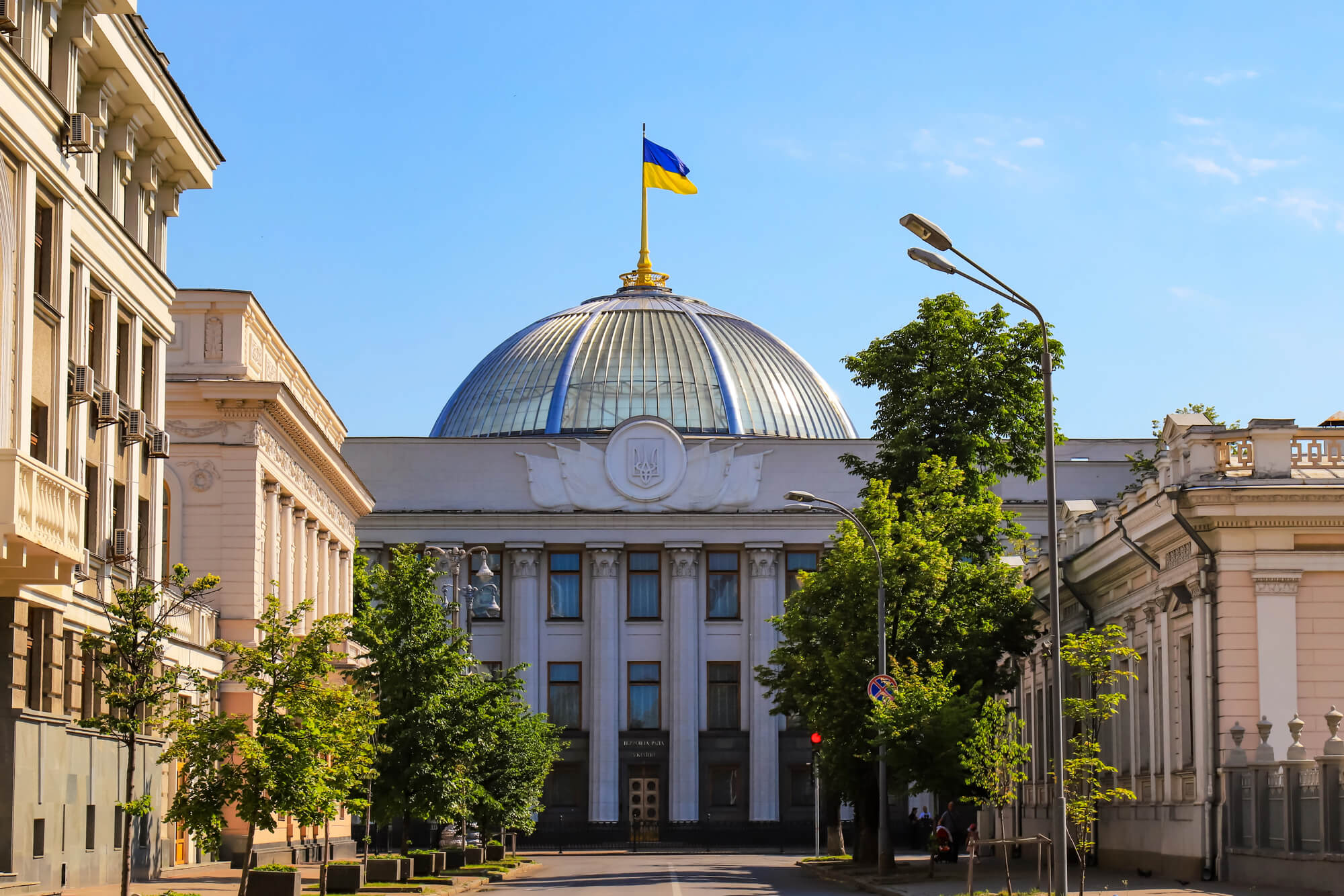In the context of global environmental challenges facing the entire world, more and more countries view public procurement as a means to meet environmental protection goals. The EU pursues one of the most consistent policies of implementing green public procurement. In Ukraine, such procurement is not developed yet. And recent regulatory changes aimed at fulfilling Ukraine’s commitments under the EU-Ukraine Association Agreement on adapting national legislation on public procurement to EU requirements, including the development of green procurement, provide new opportunities for more strategic use of procurement in Ukraine.
What is green public procurement?
Public procurement is the purchase of goods, works and services by the state to perform its functions. To increase the efficiency of procurement, contracting authorities try to purchase the highest quality products at the lowest possible price in order to save public funds.
However, due to climate change, more and more countries are considering procurement as a means to not only meet the primary function of procurement but also to contribute to environmental protection goals that are part of the concept of green public procurement. Green public procurement (GPP) is defined by the European Commission as a process whereby public authorities seek to procure goods, services and works with a reduced environmental impact throughout their life-cycle when compared to goods, services and works with the same primary function.
Public procurement in the EU amounts to around 14% of GDP (EUR 2 trillion per year). In Ukraine, this figure amounts to around 13% of GDP. Thus, public procurement can play an important role in meeting environmental goals.
The feasibility of achieving environmental goals through public procurement is still being actively discussed in scholarly literature. Some researchers believe that implementing additional procurement objectives creates trade barriers, diminishes incentives for business participation, and affects the effectiveness of the procurement system, including in the context of cost effectiveness if environmentally friendly goods are more expensive. However, there is a vast array of studies proving the contrary, including those relating to saving public funds when the lower costs of using green products can offset their higher purchase price in the long term. The EU-funded project “Harmonization of Public Procurement System in Ukraine with EU Standards” also emphasizes positive aspects of green procurement.
Green public procurement in the EU
In keeping with the value-oriented approach to the internal market, the EU undertook the reform of public procurement in 2014 by adopting new Directives 2014/24/EU and 2014/25/EU, based on achieving the Europe 2020 strategy objectives. The European Commission gradually changed its approach to public procurement (with the main purpose of regulating procurement within the EU previously being only to ensure the opening up of public markets to trade) and is actively working on Buying green handbooks on how to use environmental requirements and criteria in procurement. The strategic use of public procurement is increasingly emphasized.
Also, the EU views green public procurement as an integral part of competition policy and a level playing field. For the purpose of protecting the internal market from unscrupulous suppliers from third countries with which the Union does not have agreements or obligations in the field of public procurement, the EU provides contracting authorities with recommendations on strengthening procurement. The European Commission stresses that third country suppliers do not always meet or adhere to the same high standards as EU suppliers. It notes, however, that the strategic use of public procurement can contribute not only to the more responsible use of public funds but also to fair competition by ensuring compliance with the same standards. Studies on international trade use the “pollution haven” concept when companies transfer their productions to countries with lower environmental standards to reduce their costs and get an unfair competitive advantage. The EU will restrict the goods produced in such “harbors” from being procured.
Currently, in the EU, public procurement is considered an integral part of The European Green Deal, according to which Europe must become carbon neutral by 2050.
The Law of Ukraine “On Public Procurement” of April 19, 2020, offers new opportunities for developing green procurement
On April 19, 2020, the new version of the law of Ukraine “On Public Procurement” was enacted. The legal framework for relations in public procurement underwent significant changes, mainly due to Ukraine’s fulfilling its commitments under the Association Agreement.
The new version of the law provides significant opportunities for developing green public procurement. For example, the life-cycle cost of procured items was introduced among the tender assessment criteria. This means that, when determining the cost of a procured item, the contracting authority has a right to take into account not only the item’s asking price but also the costs during its use, including those relating to the environmental impact.
The procedure for applying non-price criteria by contracting authorities to evaluate tenders was also simplified by abandoning the approach, whereby such criteria could only be applied because of the “complex or specialized nature of procurement”. Previously, due to the absence in the Law of the concept of “complex and specialized nature of procurement”, contracting authorities had to justify the complexity of procurement. Things had gone so far that the courts did not recognize the construction works on a high-pressure underwater gas pipeline running to a settlement as a procurement item of a complex or specialized nature.
Currently, no such restrictions apply, and the Law clearly stipulates the right of contracting authorities to apply the environmental protection criterion to evaluate a tender, alongside the price. Another important change is enabling public authorities to set requirements for processes and technologies of production at any stage of the life cycle of works, goods or services in the technical specification. As a rule, green requirements are fulfilled at the production stage, e.g. using specific environmentally friendly materials or in an environmentally friendly way.
Green public procurement: an obligation or a right of contracting authorities?
Currently, both in the EU and in Ukraine, green procurement is a right, not an obligation of public authorities. However, this is gradually changing in the EU. For a long time, the European Commission has been trying to protect the role of procurement in the development of the internal market. It worked to lift barriers to trade to establish the principle of non-discrimination by setting the “how-to-buy” rules. However, with the development of the European Court case law, which did not support the Commission’s position in a number of important decisions, and also with the development of a more value-oriented approach to the EU market, the number of requirements for “what to buy” began to grow.
For example, those are the energy-efficiency labelling program for office equipment and carbon dioxide emissions for vehicles. Back in 2008, the European Commission set a target at the EU level that by the year 2010, 50 % of all tendering procedures should be green. Since 2008, the European Commission has been working to develop the EU GPP criteria for certain sectors of the economy aiming not only to remove barriers to trade but also to reduce the administrative burden for public authorities.
Many EU member states developed GPP national action plans. However, they were mainly of an advisory nature.
In EU member states’ markets, the lowest price does not always play a decisive role in winning a tender. According to Article 69 of Directive 2014/24/EU, contracting authorities shall reject the tender, where they have established that the tender is abnormally low because it does not comply with applicable obligations in the field of environmental protection under national or international law provisions (e.g. the Vienna Convention for the Protection of the Ozone Layer).
In Ukraine, the obligation in the field of green public procurement existed before the new version of the Law “On Public Procurement” was adapted. Specifically, the characteristics of a procured item should include environmental protection measures. However, in practice, implementing these requirements was on paper only. The bidders provided certificates saying that they undertake to apply environmental protection measures and adhere to applicable laws in the field of environmental protection and ecological safety.
According to the new version of Ukraine’s law “On Public Procurement”, the freedom of contracting authorities to determine “what to buy” prevails. However, with the Ukrainian legislation getting closer to the EU requirements, the green component in procurement will be increasing. A clear example of this is the draft law of Ukraine “On Energy Efficiency”, whereby public procurement is assigned an important role, which meets the requirements of Directive 2012/27/EU.
The New Industrial Strategy for Europe states that public authorities should lead by example by choosing environmentally friendly goods, services and works: “Through this green procurement they can help lead the shift towards sustainable consumption and production. The Commission will propose further legislation and guidance on green public purchasing.”
Public procurement is increasingly seen in the context of its strategic dimension. With the European Green Deal, the European Commission plans on proposing minimum mandatory criteria or public procurement targets for individual sectors or specific products, as well as EU-funded procurement. The European Commission notes that “public authorities across Europe will be encouraged to integrate green criteria and use labels in their procurements”. As Ukraine has made joining the European Green Deal a priority, such trends will directly impact the development of Ukraine’s public procurement system.
Problems on the path to developing green public procurement in Ukraine
The main problem and obstacle to developing green public procurement is Ukraine’s approach to such procurement. Today, we have a fairly narrow understanding of effective procurement as economical use of public funds. This narrow approach differs significantly from the EU approach, which clearly identifies public procurement as a potential means to achieve various EU policy goals, such as the Circular Economy Action Plan, EU Biodiversity Strategy for 2030, etc.
Developing green procurement in isolation from national strategic goals of sustainable development and policy documents of economic and social development of Ukraine can only lead to a formal “transposition” of the EU procurement directives into national legislation, and hence to the ineffectiveness of those progressive remedies introduced by the Law of Ukraine “On Public Procurement” and providing an opportunity to meet environmental goals.
Thus, despite the fact that public authorities have been working on the new progressive version of the Law for over a year, the latest study by Transparency International Ukraine says that the practice of using non-price criteria is not yet developed, and environmental criteria are not even mentioned. Besides, prioritizing the lowest price criteria in a competitive procurement process can encourage bidders to save on complying with environmental standards, to reduce costs. This undermines the achievement of sustainable development goals.
Recommendations for Ukraine
In the context of globalization processes, it is necessary to change the narrow approach to procurement as a means of economical use of public funds to a more strategic one. As well as develop an understanding that procurement can play an important role in implementing the various goals of public policy (environmental, social, etc.). It is necessary to define procurement as a tool to meet goals defined in policy documents of economic and social development of Ukraine.
We propose that a minimum share of green purchases be set for contracting authorities and plans be developed containing recommendations to increase those shares, which will gradually change public authorities’ approaches, accustomed to working in the procurement paradigm of maximizing savings. Also, in order to further strengthen the green procurement requirements, it is advisable to identify groups of goods, works and services, as well as individual industries (e.g. mining and processing) having the largest environmental impact and where green procurement can have a significant impact on environmental protection.
An important role in the development of green public procurement in Ukraine should be assigned to soft law, in particular, providing recommendations and explanations for public authorities, developing standard specifications and recommended contract terms, as well as best practices in green procurement.
We also propose to consider a gradual departure from prioritizing the lowest price as a criterion for evaluating tenders, except in cases of procuring standardized goods. The first step could be the decreasing share of price criteria, which currently stands at 70% in favor of qualitative criteria, which should include environmental protection. We emphasize that we are talking about the lowest price, not the life-cycle cost, which is also the price criterion for evaluating tenders.
Public authorities can already send a signal to businesses about the trends emerging in international markets. Businesses will thus be able to plan their production processes taking into account such trends so as not to lose markets or fall out of the global context. The EU’s move towards green procurement is irreversible. Therefore, the earlier Ukraine starts the process of preparing contracting authorities and bidders for this, the easier it will be to introduce such procurement in Ukraine.
Attention
The author doesn`t work for, consult to, own shares in or receive funding from any company or organization that would benefit from this article, and have no relevant affiliations



